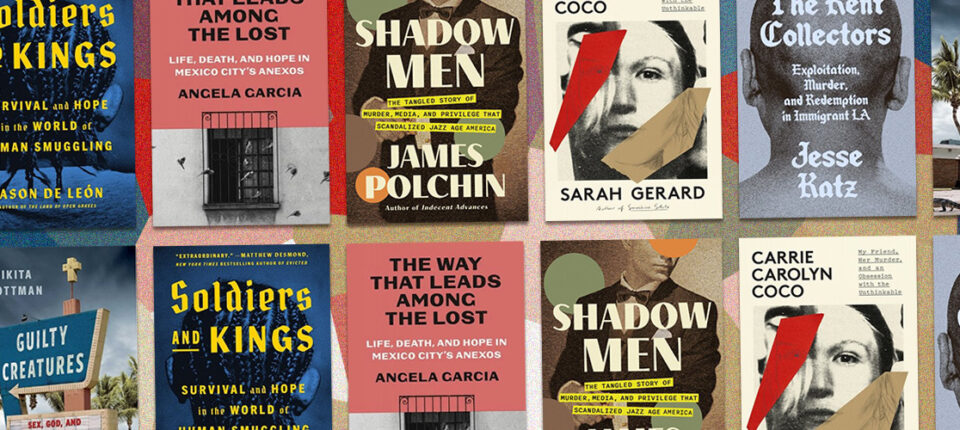Over the past few decades, we’ve seen exponential growth in both creative writing programs and the true crime storytelling industry, so perhaps it should come as no surprise to find so much beautiful writing about terrible events. Just so, as true crime has matured, those who tell such stories have learned essential lessons in how to avoid exploitation and bring in appropriate context and empathy (the anthropologists in the list below are especially notable in their sensitivities).
The works on this list are about complicated situations, torn individuals, delayed or denied justice, and a world in which those who bear the most responsibility for harm are not the ones who face the most consequences. They are about the criminalized, the victimized, and the systems that perpetuate the circumstances that enable and encourage violence. True crime is, at best, a depiction of the nexus between worlds, a disrupted moment in which incongruous threads collide with brutal symmetry. There is a before, and an after, and a long after. The after does not end.
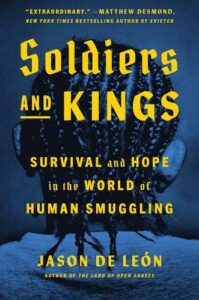
Soldiers and Kings: Survival and Hope in the World of Human Smuggling, by Jason de León
(Viking, March 19)
Jason de León is an anthropologist who uses the concept of “radical hanging out”, or embedding himself in communities for long periods of time, to tell the stories of those smugglers who eke out a bare bones living bringing people over dangerous, ever-changing routes towards relative safety. De León is kind, empathetic, and context-savvy when it comes to depicting those who lesser journalists might have rendered as one-dimensional exploitative boogeymen; the real story of exploitation is that of the United States’ impact on Latin American lives. The people in Soldiers and Kings may walk a gritty path of extra-legality, but they were not forced there in a vacuum.
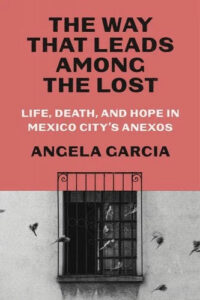
The Way That Leads Among the Lost: Life, Death, and Hope in Mexico City’s Anexos, by Angela Garcia
(FSG, April 30)
Angela Garcia is the second anthropologist on this list, also interested in extralegal acts by those who are forced into unconventional solutions. Here, she portrays the informal rehab system of Mexico City’s anexos, established as makeshift community responses to the need for affordable and accessible treatment centers (and to a lesser degree, assisted living and hideout spaces). In these cramped and crowded rooms, powerful work is done—not always helpful to the individuals in question, but always aimed at fulfilling a need shared by an enormous amount of underserved people. Angela Garcia has crafted a moody, thought-provoking, and fascinating work that will make you consider the ethics of stop-gap measures in a nuanced and hopeful way.
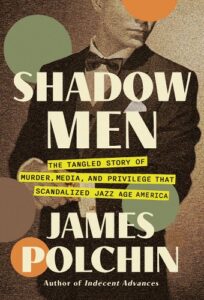
Shadow Men: The Tangled Story of Murder, Media, and Privilege That Scandalized Jazz Age America, by James Polchin
(Counterpoint, June 11)
James Polchin uses the murder of a blackmailer by his wealthy target as a jumping off point to examine power, privilege, gender, and sex in Jazz Age America. Polchin is previously the author of the much-launded Indecent Advances: A Hidden History of True Crime and Prejudice Before Stonewall, and Shadow Men cements his place in the new true crime canon.
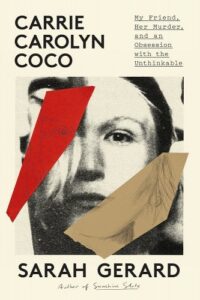
Carrie Carolyn Coco: My Friend, Her Murder, and an Obsession with the Unthinkable, by Sarah Gerard
(Zando, July 9)
Sarah Gerard’s skills in both creative writing and private investigation are on full display in this disturbing account of her friend Carolyn Bush’s murder by a roommate, and the many iniquities that enabled the crime. She also examines a wider culture of male privilege and entitlement at Bard College, the same school attended by both Carolyn and her killer, drawing a convincing through-line between the university’s abysmal record on sexual assault and mental health treatment and the shocking crime at the heart of her book. Gerard also connects the case into a wider discussion of privilege and power in the New York literary scene, and shows the devastating impact of Carolyn’s loss on an entire community.
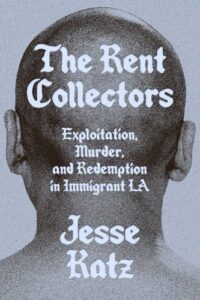
The Rent Collectors: Exploitation, Murder, and Redemption in Immigrant L.A., by Jesse Katz
(Astra, July 16)
In this stranger-than-fiction story, Jesse Katz unpacks the context of a botched hit and its long-lasting consequences. L.A. is home to numerous street vendors, caught in a gray market economy in which both authorities and criminals add to immigrant families’ financial burdens. A teenager. bent on joining a gang is told to take out a vendor who refuses to pay rent on his small patch of concrete; the target survives, but an infant is killed by a stray bullet. The shooter then is subjected to an assassination attempt, itself botched, and the subsequent long-drawn-out legal consequences reverberate across the Los Angeles underworld.
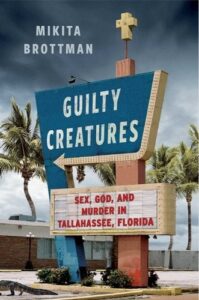
Guilty Creatures: Sex, God, and Murder in Tallahassee, Florida, by Mikita Brottman
(One Signal Publishers, July 23)
Mikita Brottman’s latest psychoanalytical approach to true crime looks at purity culture and Christian morality, grappling with the story of a murder committed by two married lovers because it seemed to them less shameful than a divorce. There is never a shortage when it comes to crimes in Florida, but Brottman has captured one of the strangest, and saddest, to ever occur in the Sunshine State.

